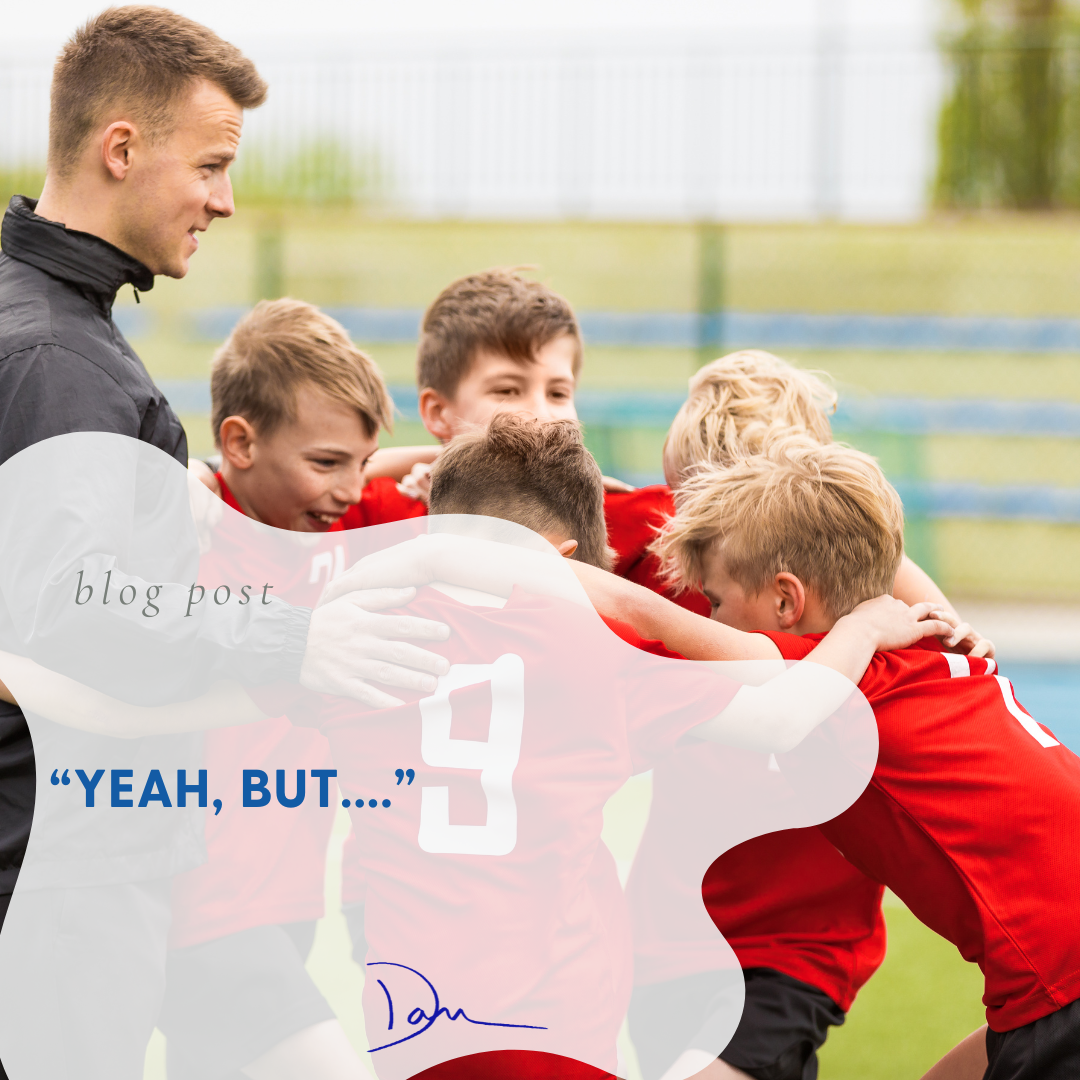One of the challenges I face personally as I work my way through this doctoral program is the sheer amount of information to sort through and the need to hoard it all. The academic side is easy. I just use Endnote to save everything and tag it. The personal side is a bit more challenging. I want to keep every question I see posted on every platform, every story that a parent shares, and every piece of information that a student shares. More importantly, I want to help as many as possible. My Evernote is the home to that, and it is overflowing. Despite all those challenges, they are not the most significant roadblocks I face daily. My biggest challenge when trying to help a neurodivergent athlete or their family is the “yeah, but…”
I did not notice until I started documenting and tracking my interactions. To be clear, when I am working with an actual client, there is a ton of documentation. I am talking about the casual Facebook messages, tags, and IG messages I receive daily. In the last five instances, they all have had a “yeah, but…” attached to them. Parents are seeking help for their players, but that request comes with conditions. Unfortunately, a lot of times, those conditions that are part of the environment cause concern. Working with neurodivergent players is often challenging because the player and the support system (parents, grandparents, teachers, coaches, etc.) haven’t educated themselves on the neurodivergent populations, research, and history. I get that. I understand that. My concern is most with putting conditions and parameters in place for the help that was asked for.
For example, I recently received a message on Facebook asking for suggestions on how to help a player who was very anxious on the court. The mom explained the entire situation and a brief history of the player’s journey to where she is now. I explained that one of the biggest challenges in dealing with sports anxiety in any athlete, not just the neurodivergent, is that there can be many root causes. For example, the player may be afraid to let their team down. They may be fearful of the consequences their coach imposes for failure. They may not want to embarrass their parents. As soon as I began to talk about some of the steps that can be taken to help, the “yeah, but..” came out. In this case, the parent only wanted to explore the connection between the player and the coach/team. Every time the connection between the parent and the player was brought up, I was met with the following: “Yeah, but we support her and tell her that. So, we are not the issue.”
I get it. It can be hard to think you are the cause of your child’s suffering. However, if we want to get to the root causes and help the athlete, we need to take deep and often very personal looks into ourselves. It is also not just the parents. I frequently hit the same roadblocks with coaches. Their “yeah, but..” often looks like this: “Yeah, but I have an open door policy” or “Yeah, but the players know I am here to listen and support them.” The problem with the coaches, much like the parents, is that they all want the focus to shift because it is uncomfortable. It is uncomfortable to be questioned, it is painful to be “investigated,” and more importantly, it is uncomfortable to think about change. Often, I find that what parents and coaches believe they are presenting is not how the individuals receive it. The coach may say that they have an open door policy, but when the player needs them, there is an air of inconvenience or “bother the coach” due to body language or automatic responses like sighs or eye rolls. Parents may say that they support their player but can be heard from the stands groaning or yelling when the player falls short at a skill.
If we truly want to help the neurodivergent player, we have to be willing to examine their full environment and act without condition. The minute we let the “yeah, but..” in, we have lost the ability to look at situations that may be challenging the player. Sometimes it is just as hard on those wanting to help their neurodivergent athlete/child as it is on the actual individual. So before you seek help from the outside world, you have to ask yourself if you are ready to honestly look at the whole environment (including yourself) to help your athlete. I would love to see the “yeah, but..” replaced with “OK, so how can I…”.
That’s it for this blog, remember…
#OneDayOne. It is either One Day or Day One; you have the power to decide.
And as always #DontSuck


